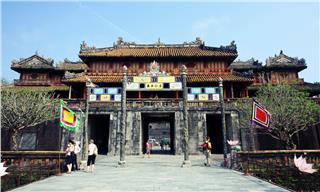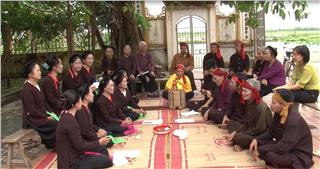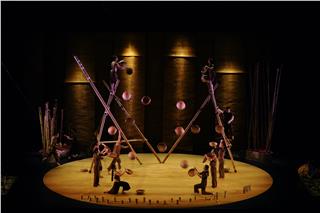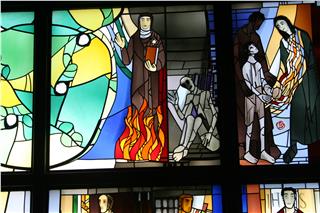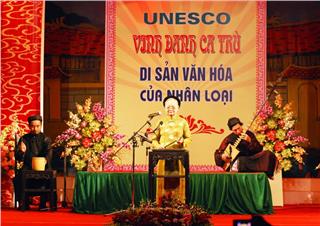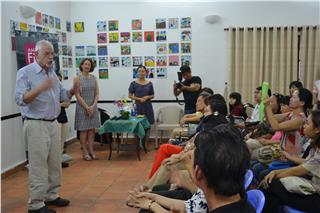Imposing cultural events in Vietnam
Thu, 04 Sep 2014 . Last updated Thu, 25 Jun 2015 08:48
-
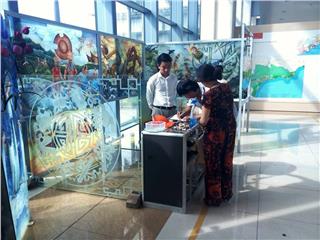 Glass painting in Vietnam 4748 viewed
Glass painting in Vietnam 4748 viewed -
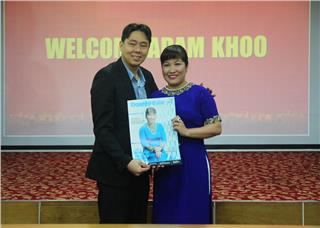 Adam Khoo shared his secret to success for Vietnamese businessmen 4625 viewed
Adam Khoo shared his secret to success for Vietnamese businessmen 4625 viewed -
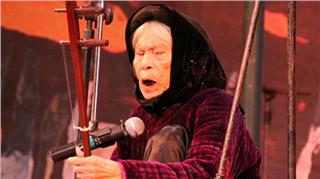 Xam singing – the Vietnamese folk music 4467 viewed
Xam singing – the Vietnamese folk music 4467 viewed -
 Biodiversity of Vietnam in insect world 3959 viewed
Biodiversity of Vietnam in insect world 3959 viewed -
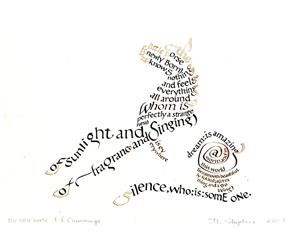 Margaret Shedperd and calligraphy journey in Vietnam 3932 viewed
Margaret Shedperd and calligraphy journey in Vietnam 3932 viewed -
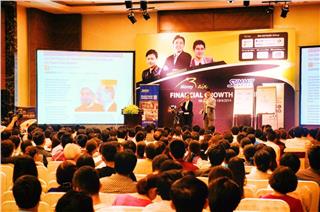 Training session of Jonathan Quek in Vietnam 3580 viewed
Training session of Jonathan Quek in Vietnam 3580 viewed -
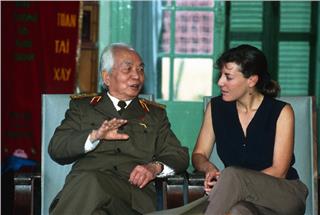 Catherine Karnow and photos of General Giap 3310 viewed
Catherine Karnow and photos of General Giap 3310 viewed -
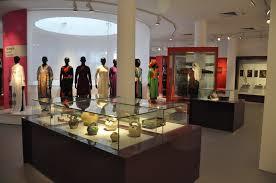 News and cultural events in Vietnam 3212 viewed
News and cultural events in Vietnam 3212 viewed -
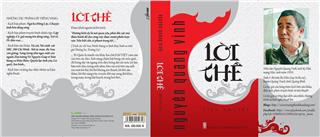 Oath novel of Vietnam seas and islands 3169 viewed
Oath novel of Vietnam seas and islands 3169 viewed
Through the program, visitors will have the chance to experience the second largest festival of Vietnam, Vu Lan festival and learn about Tuong singing, one of the Vietnamese classical theatrical art forms.
While the West has the Mother Day to be proud of, Vietnamese people have Vu Lan festival as the Vietnamese Mother Day. It is considered as the second largest festival in Vietnam after the Tet holiday. The festival takes place on the 14th and 15th day of the seventh lunar month. It is the time for people to remember how their parents nutrious and raise them. The Vu Lam festival brings an important meaning in the life of Vietnamese people because it is closely connected to the Asian tradition of worshipping the ancestor and filial piety. Like many other Buddhist followers in Vietnam, Le Thi Hien and her family very respect the value of festival which holds in the seventh lunar month of the year. The event is also a Buddhism day to pray the motherly love and it is held one year in Vietnam. Ancient legend has it that Muc Kien Lien saw his mother suffering from hell. Following Buddhist advice on the seven full moon of the year, Muc Kien Lien invited monks to pray his mother released. Since then, this day has become a festival to express the gratitude to parents and ancestors. On this occasion, monks perform a ceremony to pray for people who have passed away and help absolve their sins from the previous life so they are reincarnated to a better one. This ceremony has been a common practice for thousands of years and Vu Lan is a time for everyone to pay their respects for their ancestors. That is why pagodas often perform this ceremony throughout the 7th lunar month, making it a Vu Lan month for people.
Pagodas are crowded during the occasion, because people come to listen to the monk teachings. The monks explain the responsibility of children to pray their parents whether they are live are death. People pay the respect to their ancestors, listen to Buddha teachings and participate in the rose wearing ceremony. In the Vu Lan tradition, people will wear a red rose is their parents are still alive or a white rose if their parents are passed away. The rose is the symbol of love and gratitude of Vietnamese people to their parents and ancestors. On this day, people will bring their parents to the Vu Lan ceremony pin the rose on their parents’ dress to show their love.
Vu lan is not only a Buddhist holiday, it also represents the beautiful Vietnamese culture and the tradition of final piety. Despite many obstacles in today’s world, this tradition still retains its values. It teaches us to treasure our parents. Although nowadays, young people live like in the fast pace and start to forget the traditional value. They still deep love and respect their parent. Tha’s why there are many young visit pagodas with their parents on this day. Vu La also teache people to treat their parents well while they are still alive. Many people cried during the Vu Lan festival. Some were looking back and regretting the fact they never showed their parents how much they loved them before they passed away. So if your parents are still alive, simple gestures like taking care of them, asking them how they are go along way.
On the occasion, family members often spend time together and show love for one another. For the reason, the festival is no longer exclusively for Buddhist but occasion is also the chance for everyone to express their love for their parents. The Vietnamese tradition has not faded over time, it is developing more increasingly.
Tuong singing is one of the Vietnamese classical theatrical art forms developed from the old stories with the folk music and traditional dance. It was born in the 14th century; it is one of the oldest performance art in Vietnam. Since the 1950s, many also Tuong pieces and performance technique has been modified in order to be closer to the modern situation. At the same time, many new plays have been written with the content of the struggles for national independence and reunification. Among them “Tieng goi non song” has been selected to revive. The piece was written by Kinh Dan telling the story of Ngo Quyen, a national hero who defeated the Southern Han troop in the battlefield of Bach Dang River in the year 938 AD.
It’s the National Tuong Theatre’s mission to revive at least one old Tuong performance every year. This year, with all the arising issues related to national sovereignty and integrity, we decided to revive the Tuong performance “Call of the nation”. Besides, this year also marks the 55th anniversary of the National Tuong Theatre. And in 1962 when the performance was first put together by the Northern Tuong Division, it immediately won the gold medal in the 1st theater competition. With all these reasons in mind, the decision by the National Tuong Theatre’s board of directors to revive “Call of the nation” seems like and apt choice. Apart from the performance in 1962, this will be the second time this piece has been revived. Back in 1962, the performance was directed by Nguyen Dinh Phong and a group of actors and actresses, most of them passed away now. In 1978, Director Doan Anh Thang came back to Vietnam from Germany and revived this piece. And this year, the National Tuong Theatre chose to revive this work by national award-winner author Kinh Dan.
On July 22nd, the National Tuong Theatre held the ceremony to officially announce the plan to revive traditional Tuong performance “Call of the nation”. The theatre’s goal is to revive this work and bring the spirit of the national hero Ngo Quyen back to the Tuong stage. Through this work, we also want to send out a patriotic message that shows our efforts to fights Vietnam’s enemies throughout history.
Source: VTV4 - VTV.vn
- Tags:
- Vietnamese culture
- Vu Lan festival
- Vu Lan ceremony
- Vietnamese tradition
- Tuong pieces
- Tuong singing
- Tuong stage
- Vietnamese folk songs

